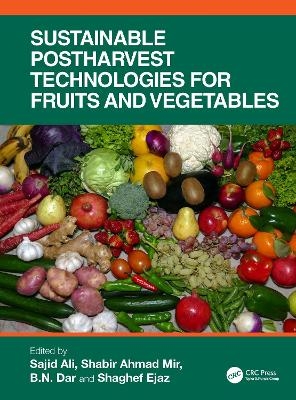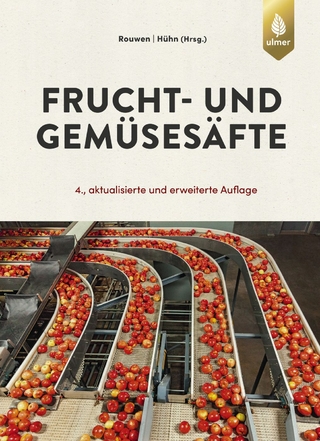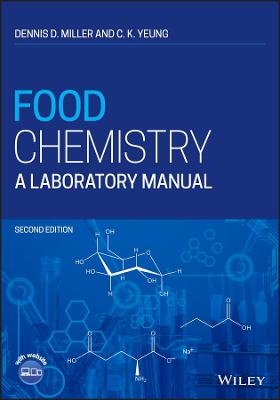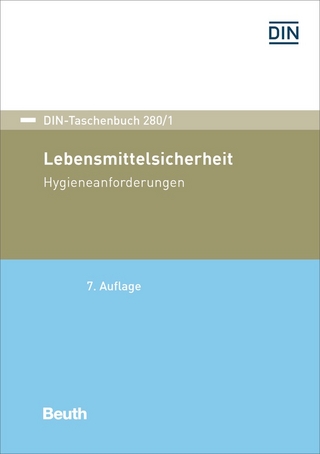
Sustainable Postharvest Technologies for Fruits and Vegetables
CRC Press (Verlag)
978-1-032-42601-3 (ISBN)
Fruits and vegetables, commonly termed as "fresh produce" are an important component of the human diet, as these provide various beneficial and essential health-related compounds. Nevertheless, fresh produce is susceptible to postharvest deterioration and decay along with loss of certain nutrients due to innapropriate storage conditions and lack of standard postharvest technologies. In addition, the short shelf life is considered another major constraint that must be extended after harvest to ensure a wider availability window of the fresh produce for consumers. From this perspective, the use of postharvest approaches is considered imperative to reduce the deterioration of harvested fresh produce in order to extend their storage and shelf life potential on a sustainable basis. Sustainable Postharvest Technologies for Fruits and Vegetables covers various aspects of postharvest technologies with major developments over the recent past and provides a way forward for the future.
The sustainable use of various technologies and elicitors could be adapted from farm to fork in order to conserve the eating quality of fresh produce. Therefore, this book covers various sustainable postharvest treatments and technologies that could be considered highly effective for the delay of postharvest senescence and deterioration. Among the various technologies, the use of preharvest treatments, controlled atmosphere, dynamic control atmosphere, modified atmosphere and hypobaric conditions has tremendous potential for the fresh fruits and vegetables industry. In the same way, cold plasma, pulsed light, ultraviolet light, ultrasound technology, nanoemulsions, nano-packaging, electrolyzed water, high pressure processing, ozone gas, irradiations, edible coatings, vacuum packaging and active packaging with slow releasing compounds along with nanotechnology are highly practicable and possesses tremendous potential to be used in the maintenance of overall eating quality and storage life extension of the fresh produce.
Key Features:
Overviews the major factors affecting postharvest physiology and shelf life potential of fresh produce.
Focuses on major sustainable technologies having the potential to maintain postharvest quality and extend shelf life of fruits and vegetables.
Describes practical and recent advances of various approaches indispensable for the maintenance of overall eating quality and food safety attainment for fresh produce on a sustainable basis.
Covers how quality maintenance and shelf life rely on preharvest practices, nonthermal treatments, storage atmospheres, packaging materials, active packaging, edible packaging, coating application techniques, nanotechnology and ecofriendly plant extracts and natural antagonists.
Dr. Sajid Ali, (PhD) is an Assistant Professor in the Department of Horticulture, Faculty of Agricultural Sciences and Technology, Bahauddin Zakariya University, Multan, Pakistan. Dr. Ali acquired BSc (Honors) Agriculture with Major Horticulture from Bahauddin Zakariya University, Multan, Pakistan. He received his MSc (Honors) Horticulture and PhD Horticulture (Postharvest Physiology) from University of Agriculture, Faisalabad, Pakistan. He received advanced training in postharvest physiology of horticultural crops from US Horticultural Research Laboratory, USDA-ARS, Fort Pierce, Florida, USA. Dr. Ali has authored and co-authored around 120 international papers and around 25 book chapters. He has edited a book entitled ‘Postharvest Physiological Disorders of Fruits’. He is Editor of BMC Plant Biology, Associate Editor of Frontiers in Sustainable Food Systems and Academic Editor of Plos One. Dr. Ali is an active reviewer for the various international scientific journals. He has worked as a Research Officer and as a Project Development Officer in two Research Projects at University of Agriculture, Faisalabad, Pakistan. He has won several research projects and awards. He teaches different graduate and postgraduate courses of horticulture. Shabir Ahmad Mir, (PhD) is an Assistant Professor at the Government College for Women, M.A. Road, Srinagar, Jammu and Kashmir, India. He obtained his M.Sc. (Food Technology) degree from Islamic University of Science and Technology, Awantipora, India, and PhD (Food Technology) from Pondicherry University, Puducherry, India. He received the best PhD Thesis Award for outstanding research in the field of food technology. He has organized several conferences and workshops in Food Science and Technology. Dr. Mir has published numerous international papers, book chapters and edited eleven books. Dr. Basharat Nabi Dar, (PhD) is a distinguished expert in Food Technology, recognized for his extensive contributions to the field. As an academic and researcher, he has significantly advanced the understanding of food science, focusing on byproduct utilization and nutritional enhancement. His academic journey is marked by prestigious positions and collaborations with esteemed institutions. Dr. Dar's prolific output includes numerous publications, patents, and projects, reflecting his deep commitment to research and innovation. He has been a technical expert Member of the Joint FAO/WHO Expert Meeting on Microbiological Risk Assessment (JEMRA) since July 2021. He has presented his research to a wide variety of audiences cutting across government and private organizations to much appreciation. He has published more than 150 research and review papers in some of the top journals in the discipline and has editorship of 10 books. Dr. Dar's work not only contributes to academic knowledge but also has practical implications, bridging the gap between research and industry applications. Dr. Shaghef Ejaz, Ph.D., is an Associate Professor and researcher at the Department of Horticulture, Bahauddin Zakariya University, Multan, Pakistan. Dr. Ejaz acquired his B.Sc. (Hons.) Agriculture with Major Horticulture and M.Sc. (Hons.) Horticulture from Department of Horticulture, Bahauddin Zakariya University. He was awarded a Ph.D. scholarship from Higher Education Commission, Islamabad, Pakistan. He acquired his Ph.D. from the University of Natural Resources and Life Sciences, Vienna, Austria with a specialization in postharvest quality assessment of fresh horticultural commodities. Dr. Ejaz has research experience of more than 15 years and teaching experience of 10 years. He has published more than 60 research and review articles with a cumulative Web of Science impact factor (IF) of almost 200. He has also contributed 25 book chapters in books published by various international publishers. Dr. Ejaz has also presented his research work and delivered lectures in more than 15 national and international seminars and conferences. Dr. Ejaz, as Associate Editor and Review Editor, is also on the editorial board of many well-reputed Journals. Recently, Dr. Ejaz’s research work has been mainly focused on the minimal postharvest processing of fresh fruits and vegetables. Besides being an active researcher, he has been a dynamic teacher and supervisor, which is recognizable from the research publications of his students during his supervision.
Part I Postharvest and Sustainable Technologies Applications
Chapter 01 An Introduction to Postharvest Handling Technology of Fresh Fruits and Vegetables
Umezuruike Linus Opara, Israel Ogwuche Ogra
Chapter 02 Sustainable Technologies: Prospects and Potential Applications in Postharvest Storage of Fruits and Vegetables
Nirmal Kumar Meena, Bandemuth Renukaradhya Vinod, Munishami Menaka, Prasoon Gunjan, Brijesh Kumar, Meerasabihalli Rangaswami Chandana
Part II Gaseous Atmosphere Applications
Chapter 03 Controlled Atmosphere Storage for Fruits and Vegetables
Yoshihiro Imahori
Chapter 04 Dynamic Controlled Atmosphere Technology for Fruits and Vegetables
Muhammad Rafiullah Khan, Ali Muhammad, Yaodong Guo, Majid Suhail Hashmi, Rafiq Ahmad
Chapter 05 Ozone Gas Technology for Fresh Fruits and Vegetables
Vijay Yadav Tokala
Part III Light, Gas and Ultrasonic Applications
Chapter 06 Pulsed Light for Fresh Quality Preservation of Fruits and Vegetables
Maratab Ali, Nauman Khalid, Aqsa Akhtar, Sadia Aslam, Zienab F.R. Ahmed Xinhua Zhang
Chapter 07 Cold Plasma Technology for Fruits and Vegetables Quality Preservation During Postharvest Storage
Ernesto Alonso Lagarda-Clark, Martín Ernesto Tiznado Hernández, Arturo Duarte-Sierra
Chapter 08 Ultraviolet (UV) Light Technology for Postharvest Fruits and Vegetables
Muhammad Wasim Haider, Muhammad Nafees, Mohammad Valipour, Habat Ullah Asad, Romina Alina Marc
Chapter 09 Ultrasound Technology for Fresh Fruits and Vegetables
Mostafa Gouda, Xiaoli Li
Part IV Pressure Manipulations based Applications
Chapter 10 Advances In Hypobaric Storage of Fresh Horticultural Produce
Samina Khalid, Hafiz Muhammad Rashad Javeed, Hafiz Umer Javed
Chapter 11 Impact of High Pressure Carbon Dioxide on the Processing Of Fruits and Vegetables
Ayesha Murtaza, Aamir Iqbal, Kanza Aziz Awan, Amber Tufail, Shinawar Waseem Ali, Shoaib Younas, M. Sajid Manzoor
Chapter 12 High Pressure Processing of Fresh Fruits and Vegetables
Ayesha Sarker, Md Rayhan Shaheb
Part V Packaging Materials and Emulsions Applications
Chapter 13 Nanoemulsions-Based Edible Coatings for Postharvest Quality Preservation of Fruits and Vegetables
Sajid Ali, Ghulam Khaliq, Ayesha Iftikhar, Shabir Ahmad Mir, Shahid Iqbal
Chapter 14 Nano-Packaging Technology for Conserving the Quality of Fruits And Vegetables
Leila Taghipour, Pedram Assar
Chapter 15 Modified Atmosphere Packaging and Individual Shrink Wrapping for Fresh Fruits and Vegetables
Mahmood Ul Hasan, Zora Singh, Hafiz Muhammad Shoaib Shah, Aman Ullah Malik
Chapter 16 Vacuum Packaging Science and Postharvest Quality of Fruits and Vegetables
Hafiz Muhammad Shoaib Shah, Mahmood Ul Hasan, Sajid Ali
Chapter 17 Antimicrobial Packaging for Fruits and Vegetables
Asghar Ramezanian, Hossein Shadmanfard
Part VI Irradiation and Water based Applications
Chapter 18 Irradiation of Fresh Fruits and Vegetables
Qasid Ali, Adem Dogan, Mustafa Erkan
Chapter 19 Electrolyzed Water Based Technology for Fresh Fruits and Vegetables Shafi Ahmed, Sharmin Akther, Md. Sakib Hossain
Chapter 20 Molecular Hydrogen and Hydrogen-Rich Water for Fresh Fruits and Vegetables Preservation
Nida Firdous, Aliza Batool, Shabbir Ahmad, Muhammad Usman, Muhammad Sibt e Abbas, Umar Farooq, Farid Moradinezhad, Fareena Jamil
Part VII Nanotechnology Applications
Chapter 21 Potential of Nanoparticles for Postharvest of Fruits and Vegetables
Azri Shahir Rozman, Norhashila Hashim, Bernard Maringgal, Intan Syafinaz, Mohamed Amin Tawakkal Khalina Abdan, Akhmad Sabarudin
Chapter 22 Nanocoatings for Fruits and Vegetables
Bushra Hussain, Sajid Ali, Waqar Shafqat, Muhammad Moaaz Ali
Part VIII Edible Films and Coatings Applications
Chapter 23 Edible Films for Postharvest Quality Management of Fresh Fruits and Vegetables
Farzana Rafeeq, Sami Ullah, Kashif Razzaq, Uzman Khalil, Tanveer Hussain, Seema Kanwal
Chapter 24 Edible Coatings for Postharvest Fruits and Vegetables Storage
Sajid Ali, Muhammad Hassan, Shaghef Ejaz, Muhammad Naveed Arshad, Irfan Ali Sabir
Chapter 25 Multilayer Edible Coatings Technology for Fresh Fruits and Vegetables Somayeh Rastegar, Soheila Aghaei Dargiri, Emad Hamdy Khedr
Part IX Natural Products, Antagonistic Microorganisms and Preharvest Applications
Chapter 26 Role Of Active Packaging in the Preservation of Fresh Fruits And Vegetables
Shaghef Ejaz, Sajid Ali, Rehaba Abid, Neha Khizar, Laraib Amjad
Chapter 27 Natural Plant Extracts and Postharvest Quality of Fruits And Vegetables
Ambreen Naz, Kashif Razzaq, Sami Ullah, Misbah Sharif, Ali Hamza, Syed Bilal Hussain
Chapter 28 Antagonistic Microorganisms Technology for Horticultural Produce
Soheila Aghaei Dargiri, Somayeh Rastegar, Emad Hamdy Khedr
Chapter 29 The Effects of Preharvest Treatments on the Postharvest Storage Quality of Different Horticultural Products
María E. García-Pastor, Fernando Garrido-Auñón, Jenifer Puente-Moreno, Huertas M. Díaz-Mula, María Serrano, Daniel Valero
| Erscheinungsdatum | 28.08.2024 |
|---|---|
| Zusatzinfo | 50 Tables, black and white; 40 Line drawings, black and white; 33 Halftones, black and white; 73 Illustrations, black and white |
| Verlagsort | London |
| Sprache | englisch |
| Maße | 210 x 280 mm |
| Gewicht | 1065 g |
| Themenwelt | Technik ► Lebensmitteltechnologie |
| Weitere Fachgebiete ► Land- / Forstwirtschaft / Fischerei | |
| ISBN-10 | 1-032-42601-2 / 1032426012 |
| ISBN-13 | 978-1-032-42601-3 / 9781032426013 |
| Zustand | Neuware |
| Haben Sie eine Frage zum Produkt? |
aus dem Bereich


